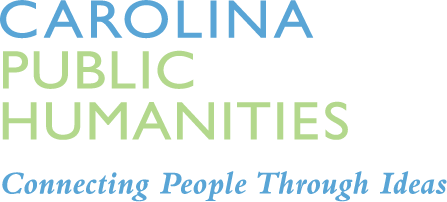About Us

Carolina Public Humanities (formerly the Program in the Humanities and Human Values), a unit of the College of Arts and Sciences at UNC-Chapel Hill, offers engaging and innovative public seminars and lectures on a variety of topics and themes throughout the year. Our programs draw upon the humanities to nurture a deeper understanding of history and culture, enrich the life of the mind, and contribute to the development of a more humane world.
Since its inception in 1979, Carolina Public Humanities has sponsored over 900 seminars, workshops and conferences, drawing over 57,000 community members to the University to discuss, engage with and learn about a wide range of moral, social, and cultural issues.
Seminars feature speakers from faculty at the University of North Carolina at Chapel Hill, as well as from other educational and cultural institutions in the Triangle and throughout the state. Seminars often include access to special events on campus related to the theme or topic being explored, such as tickets to plays, concerts, art exhibits, and more. Participants also have the option of participating in accompanying receptions and meals, where dialogue and conversation among participants and presenting scholars are a highlight.
Learn more about CPH and the events offered by viewing the short video below. Visit our Events page to learn about upcoming events.

Carolina Public Humanities integrated Carolina K-12 (formerly the NC Civic Education Consortium) into its programs in April, 2012. Carolina K-12 works to extend the seminars offered by Carolina Public Humanities and the resources available throughout UNC-Chapel Hill to North Carolina’s K-12 educators. Carolina K-12 offers quality professional development programs which include access to scholars on key topics, innovative lesson plans, and interactive pedagogical training. To learn more about them and to access their online Database of K-12 Resources, click here.
For more information about Carolina K-12 and our K-12 offerings, contact Christie Hinson Norris at cnorris@unc.edu.
The offices for both Carolina Public Humanities and Carolina K-12 are located at:
1700 MLK Boulevard
The University of North Carolina at Chapel Hill
Campus Box, 3425
Chapel Hill, NC 27599-3425
You can contact us via email at human@unc.edu or via our main phone line: 919-962-1544

The Program in the Humanities and Human Values, a unit of the College of Arts and Sciences, sponsors public programs which draw on the humanities to nurture a deeper understanding of our history and culture, enrich the life of the mind, and contribute to the development of a more humane world.
Since its inception in 1979, the Program has sponsored over 800 seminars, workshops and conferences, drawing nearly 51,000 participants to the University to discuss a wide range of moral, social, and cultural issues.
The Program in the Humanities and Human Values, a unit of the College of Arts and Sciences, sponsors public programs which draw on the humanities to nurture a deeper understanding of our history and culture, enrich the life of the mind, and contribute to the development of a more humane world.
Since its inception in 1979, the Program has sponsored over 800 seminars, workshops and conferences, drawing nearly 51,000 participants to the University to discuss a wide range of moral, social, and cultural issues.
